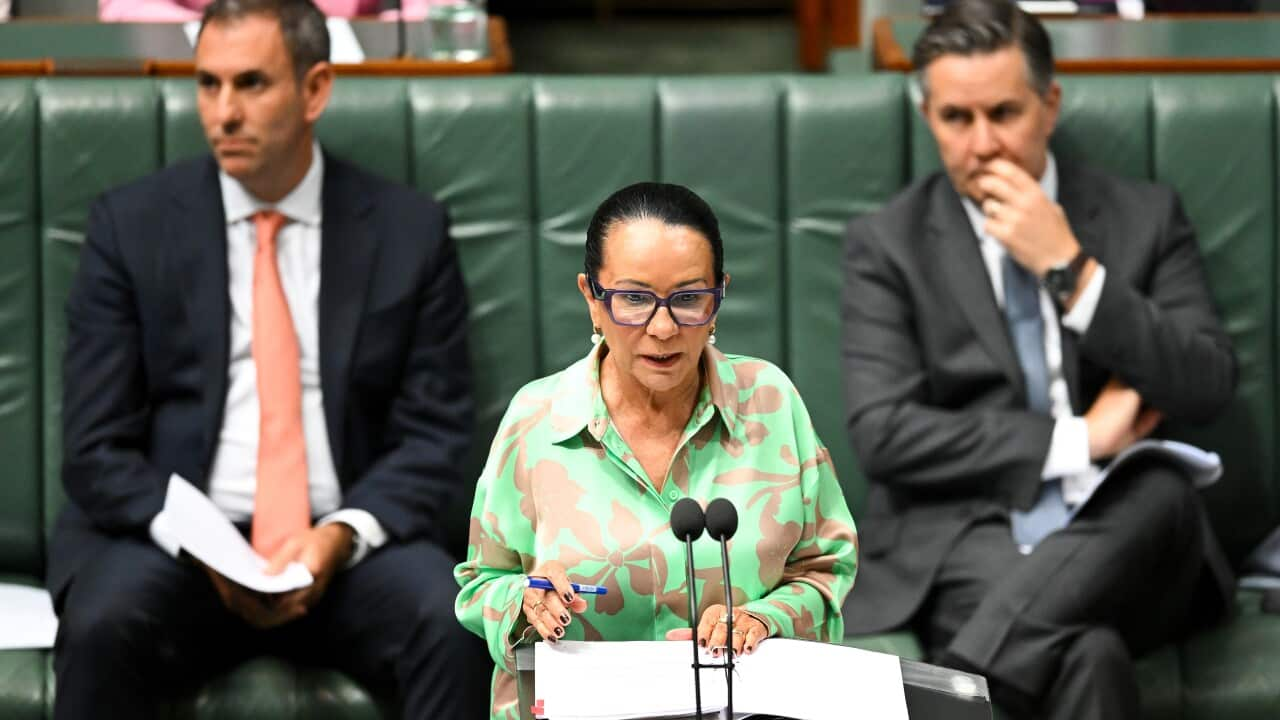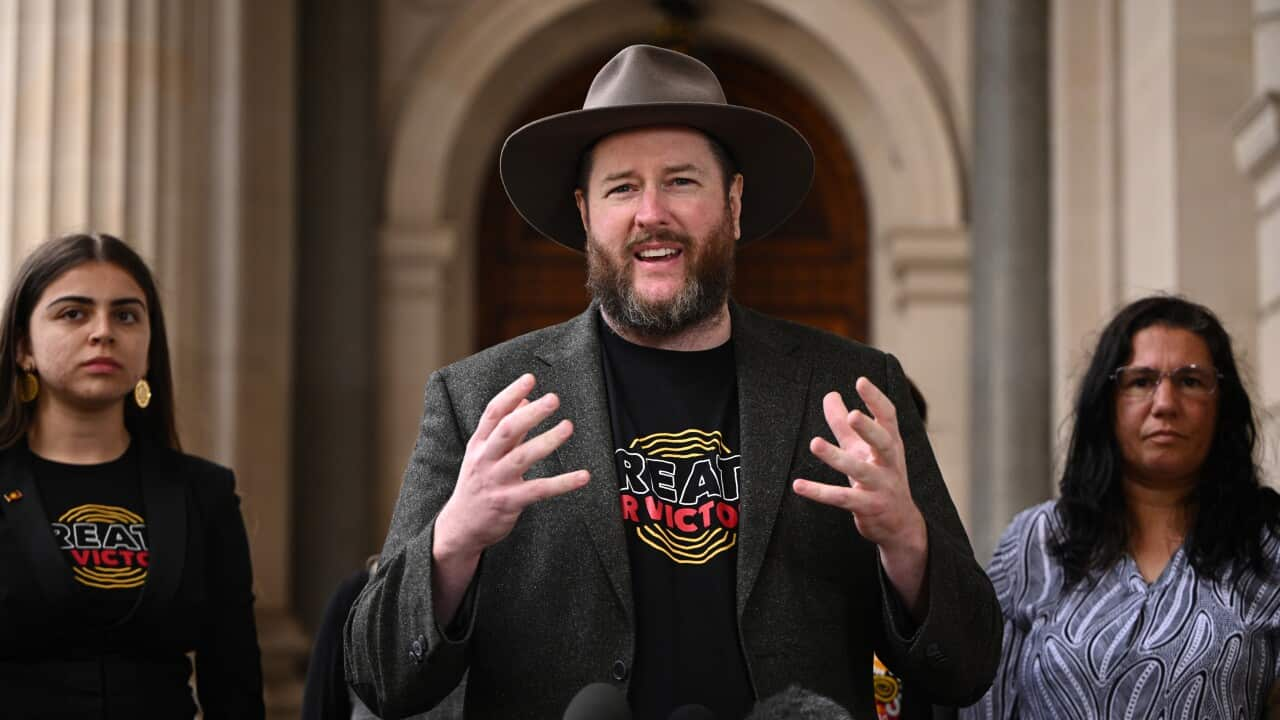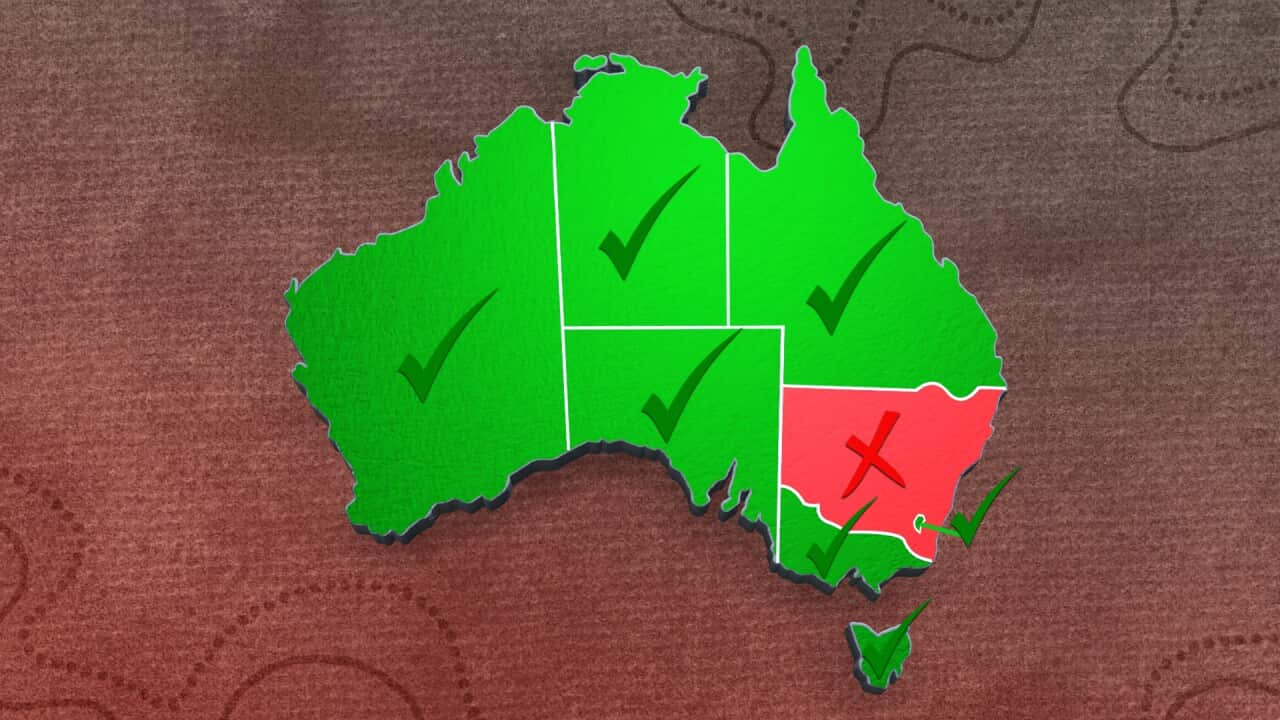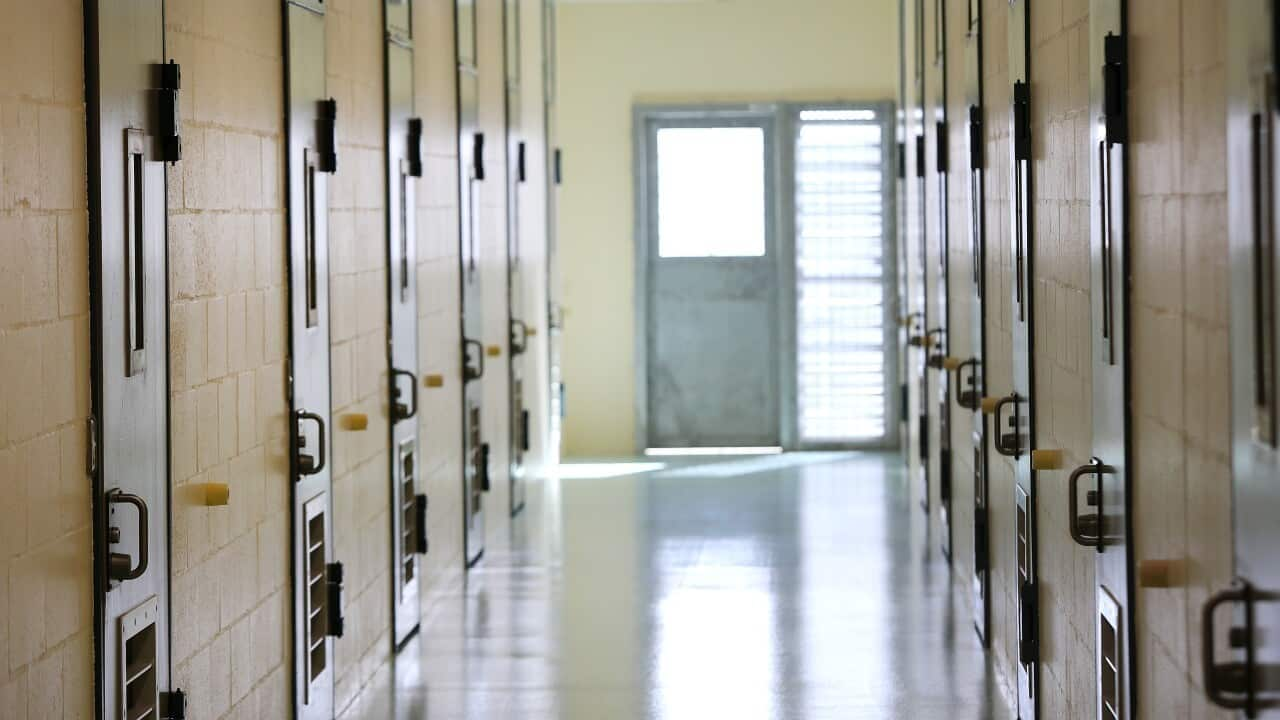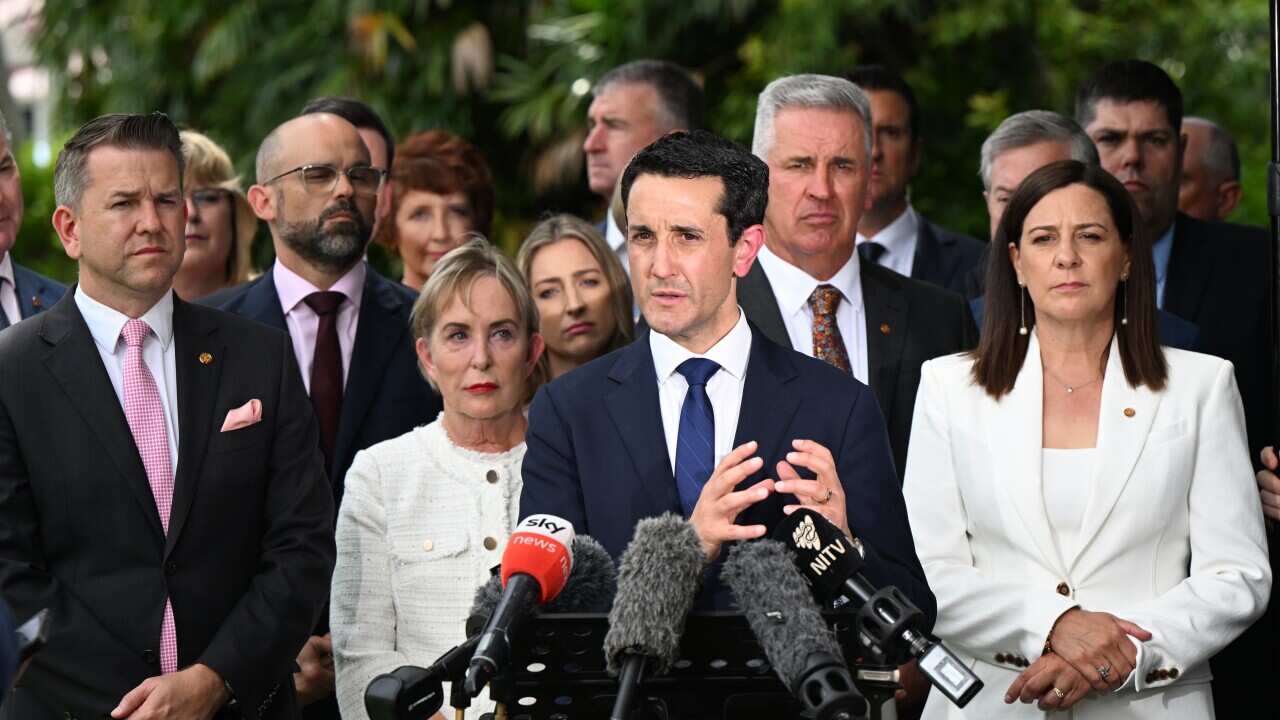When Anthony Albanese took to the podium on election night 2022, the victorious prime minister-elect's first words were a promise to implement the Uluru Statement from the Heart in full.
Voice, treaty and truth were requested by the delegates of the First Nations dialogues, three pillars which it is hoped will advance Indigenous rights, well-being and sovereignty.
The first of those, a constitutionally enshrined body advising on matters affecting Aboriginal and Torres Strait Islander peoples, was soundly rejected by the electorate two months ago.
But where to now for treaty? In the wake of the Voice's defeat, what is the future for negotiations between government and the lands' First Peoples?
Referendum fallout
The referendum seems to have blunted the public's enthusiasm for pursuing treaties with the continent's Indigenous peoples.
A recent poll from the Resolve Political Monitor showed a collapse in majority support for such agreements, from 58 per cent in October to 33 per cent the next month.
Independent senator Lidia Thorpe says the dwindling support is a direct result of the Labor government's prosecution of the referendum.
"The country clearly wasn't ready," she told NITV.
"It's not something that all of a sudden you can just throw out there and and hope for the best."

Senator Thorpe places blame for treaty's fall in support at the feet of the government. Source: AAP / MICK TSIKAS/AAPIMAGE
"There's a lot of truth telling and healing that needs to occur before we take the nation to any vote on the rights for First People in this country."
The government has been muted on its plans following the referendum's rejection.
“[We are] taking the time to pause and to listen to Indigenous communities before we decide on the next steps forward," said Indigenous Affairs minister Linda Burney last month.
Treaties: what's happening right now?

The First People's Assembly represents the most advanced treaty and truth making process on the continent. Source: AAP / Joel Carrett
Victoria's First People's Assembly will soon be sitting down with the state government to begin negotiations for a state-wide treaty.
, the state's truth telling forum, Co-Chair of the assembly, Rueben Berg said the community is looking forward to the next step.
"It's a conversation we've been having for a long, long time here in Victoria," the Gunditjmara man told NITV.
"To know that we're close to be able to start these negotiations ... there is a strong level of interest and excitement about where we're at."
He dismissed concerns that the referendum's result, and the subsequent poor polling for treaty, would jeopardise the upcoming negotiations.
"This government has shown a really strong commitment to the process, as demonstrated across the multiple years," he said.
"When Jacinta Allen took over as premier, she showed a strong commitment towards the treaty process, and I expect that support to continue," he said.
Ms Allen told the Guardian last week that the government had not changed its position, however could not comment on when any negotiations, once completed, would be enacted via legislation.
“I’m not going to come to the table wanting to prejudge the outcome,” she said.
Political support shifting
While the Victorian process seems to be continuing as planned, that may be a reflection of the Voice result there, which was rejected by the smallest margin amongst the states.
Other state leaders from jurisdictions with higher 'No' votes have prevaricated in their public statements since the referendum.
NSW leader Chris Minns said in the wake of the Voice's defeat that the treaty process would remain in a consultation and planning phase until after the next election.
Meanwhile in Queensland, the state with the highest 'No' vote,
Co-Chair of the state's Interim Truth and Treaty body, Mick Gooda, said they remained focused on progress towards future negotiations.
"I think everyone got a bit wobbly after the referendum," he told NITV.
"But now I've called for expression of interest in both the institute council and the [truth-telling] inquiry membership, and as far as we're concerned we're back on track."
Applications for the roles close on Thursday, and once the positions are filled, the state's Path to Treaty Act comes into force.
But with state elections slated for October next year, and Labor's poor polling indicating a possible change of government, the future of those bodies could be in doubt.
Mr Gooda says he's concentrating on the task at hand.
"I've been around long enough to know that you can't start preparing on the possible out comes of elections 10 months before," he said.
"You've got you work on the things you've got control over.
"We've got no control over what the opposition says. We've got no control over the outcome of the election, but we do have a control over making sure the Treaty Institute's working and the truth telling inquiry is underway."


